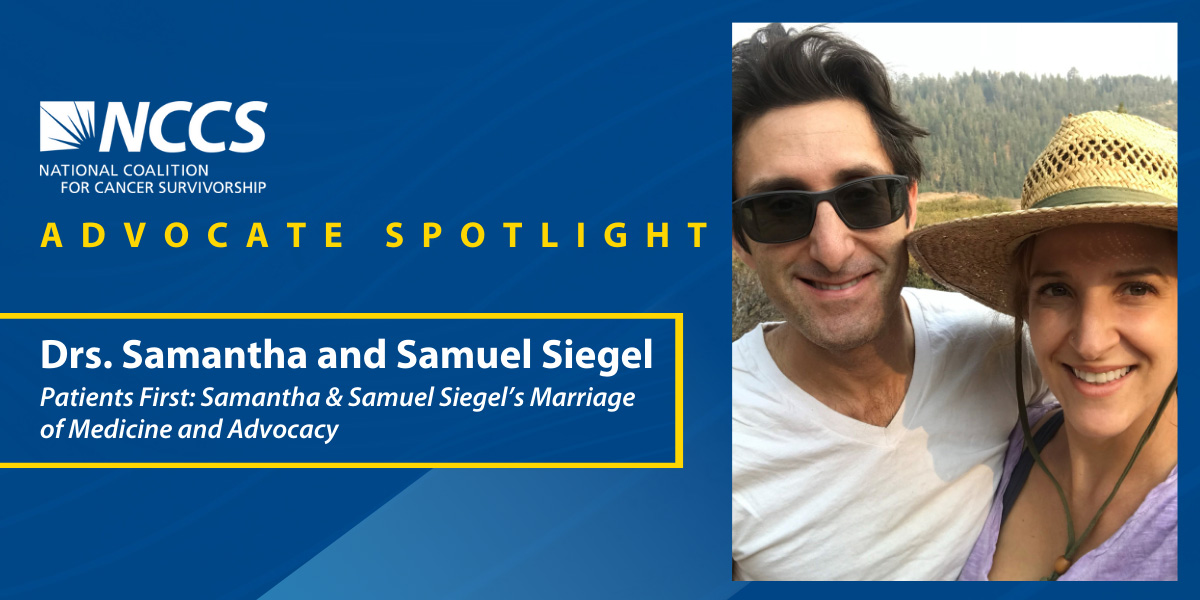Patients First: Samantha & Samuel Siegel’s Marriage of Medicine and Advocacy
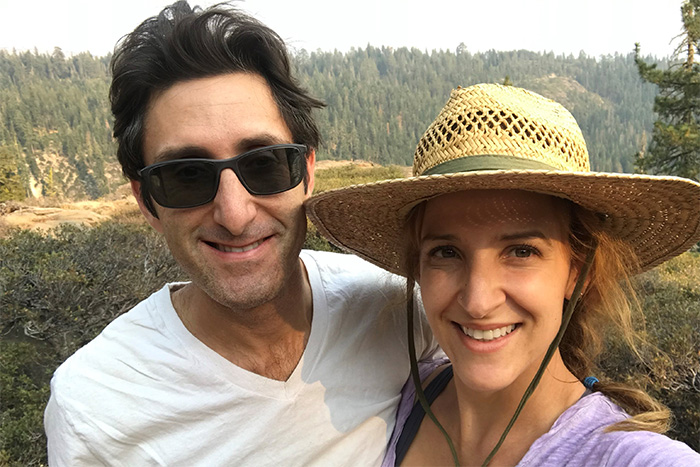 Advocate Spotlight: Drs. Samantha and Samuel Siegel
Advocate Spotlight: Drs. Samantha and Samuel Siegel
Samantha and Samuel Siegel started medical school together at Jefferson Medical College in 2008, the only married couple in their cohort. While Samuel had been managing chronic health conditions since his early 20s, including inflammatory bowel disease and autoimmune liver disease, their third year of medical school brought new challenges.
Working opposite shifts, their busy schedules meant they rarely saw each other. One night, Samantha noticed Samuel’s swollen testicle. He had been brushing off the pain, attributing it to a sports injury. Samuel recalls, “So I was doing the typical thing, brushing off the pain in my groin. And even though at that point I had already been diagnosed with two rare medical conditions, I never in a million years thought that anything else could happen. I had no trouble really excusing the dull ache that I had been feeling for a few weeks.”
Samuel saw a physician and quickly learned he had testicular cancer. His treatment began immediately, including surgery and chemotherapy. Despite the rigor of treatment, Samantha and Samuel continued working through his treatment, driven by the academic and financial pressures of medical school. They also faced the challenge of preserving fertility amidst the rush to start treatment. Samantha reflects, “We were actually lucky that fertility preservation was part of the initial discussion because a lot of people don’t even get that.”
Throughout Samuel’s treatment, there was little support for Samantha as a care provider. “There was no support for care partners at that time. Everybody was focused on me, even though really it was harder for her at that point,” Samuel says. Samantha remembers, “Sam got to be stoic and brave for returning to his rotations, but I was wracked with fear and overwhelm. I felt trapped, I thought if he can be strong enough to return to his rotations, why should I need a break?”
Despite the hurdles, Samantha and Samuel persevered. They completed their medical training in the Bay Area, and grew their family, with the birth of 3 wonderful children over the next few years. Eventually, they learned that Samuel’s liver disease had progressed, requiring a liver transplant in 2016. This worsened his inflammatory bowel disease and led to additional treatments and surgery.
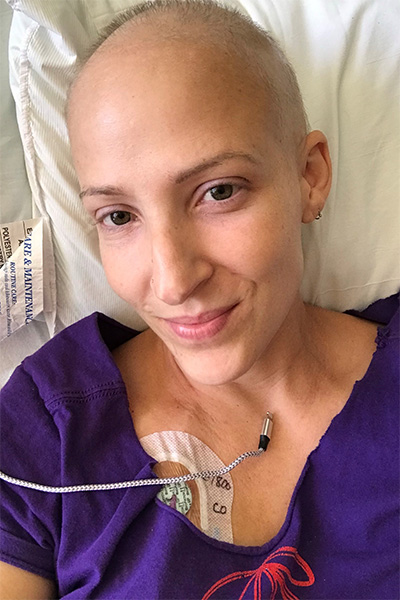
Samantha during a bone marrow transplant procedure.
Soon after, Samantha faced her own health crisis. After months of fatigue and a persistent cough, she discovered a lump above her collarbone. The diagnosis was Hodgkin’s Lymphoma. She underwent an arduous treatment regimen, including chemotherapy, a bone marrow transplant, and post-transplant consolidation therapy.
Samantha recalls her doctor congratulating them at the end of treatment. “She declared me cured at that visit and then asked if we were going to Hawaii, which I thought was a little bit tone deaf. I knew her question was well-intentioned, but frankly, I wasn’t even sure I wanted to live anymore at that point in the state that I was in, there was no mention of the word survivorship.”
Samuel remembers it being a difficult time, too. “It was tough. I tried my best to support her, but there was an obvious decline in her emotional and physical health. She seemed to get worse rather than better, even though she was cured. And then she found another lump in her neck.” A month later, despite initial remission, Samantha’s cancer had relapsed and would require further intensive treatment.
Samantha’s experiences throughout diagnosis and treatment highlighted significant gaps in survivorship care. Her medical complications seemed to spiral; painful cystitis, cognitive impairment, peripheral neuropathy, metabolic dysfunction, and liver inflammation among the impacts from her treatment. “Chemo, targeted chemo, and recovery were really hard. There was little help, once I was in remission. The advice I received was that it was just going to take some time to recover,” she said. When she asked about survivorship, she was often redirected toward surveillance guidelines. “That was not what I needed, and definitely not the answers to the questions I was asking. There was a huge disconnect there, but I didn’t know what to do about it.”
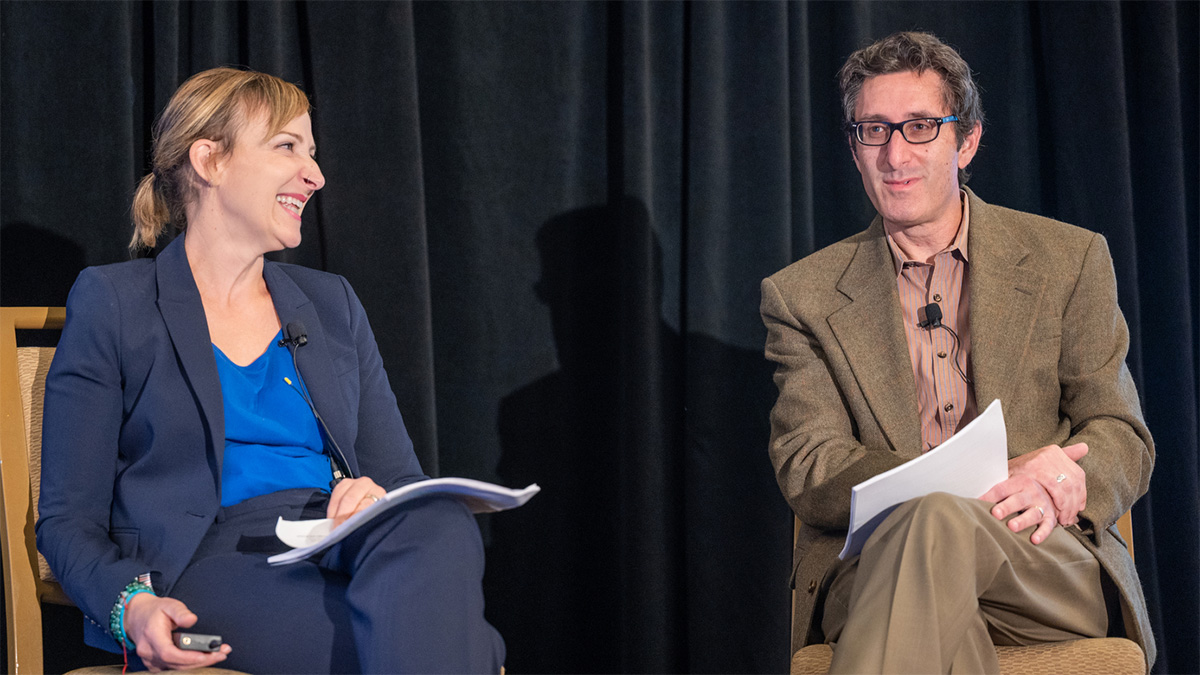
Samantha and Samuel deliver the keynote presentation at NCCS’s 2024 Cancer Policy and Advocacy Team (CPAT) Symposium.
Because of their personal cancer experiences, Drs. Samantha and Samuel Siegel are particularly passionate about cancer survivorship. Having recognized gaps in their care and a lack of understanding around cancer survivorship needs, Samantha is intent on developing a survivorship care model that begins at diagnosis and integrates comprehensive, holistic care. She emphasizes, “Surveillance is not survivorship.”
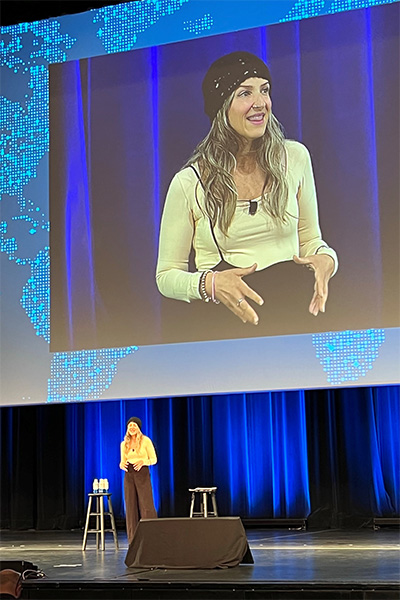
Samantha speaks at the 2023 ASCO Annual Meeting.
Their advocacy efforts aim to elevate cancer survivorship to a recognized medical discipline. They believe in the power of storytelling and the importance of sharing personal narratives to drive change.
Both Samantha and Samuel stress the importance of joining support groups, engaging in advocacy, and sharing personal stories to foster change. “We may be physicians, but we’re patients first,” says Samantha. They encourage new advocates to trust their intuition, seek second opinions, and advocate for themselves and their loved ones.
Their journey underscores the need for systemic changes in medical education to better prepare clinicians for the complexities of cancer survivorship. Together, they are a powerful force for change.
New to patient advocacy? Or looking to sharpen your advocacy skills? Learn more and Join the NCCS Cancer Policy & Advocacy Team »
